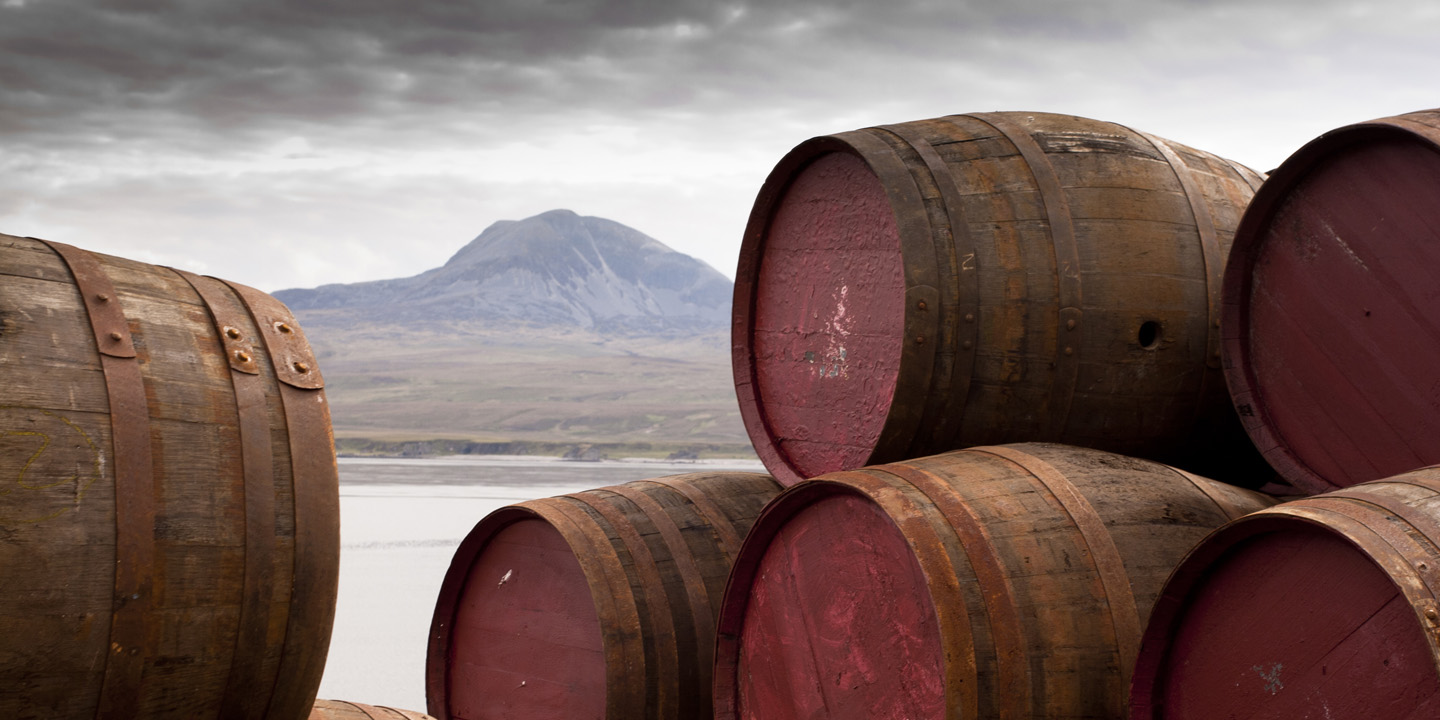What Makes Scotch, Scotch?
Learn Whisky
Let’s begin by stating the obvious- for a whisky to be classed as Scotch it has to, you guessed it, be produced in Scotland. This is stated in the Scotch Whisky Regulations 2009.
Although this geographic rule is what usually defines Scotch whisky and sets it apart from other distilled spirits worldwide, there is much more to it. The distillation of Scotch can only be carried out by following many rules and regulations in order to preserve Scotch’s rich history and traditional production practices.
Whether you believe them to be too strict or not, the Scotch Whisky Regulations 2009, which superseded the Scotch Whisky Act of 1988 are the final word on what defines Scotch whisky. From ingredients and distillation, to labeling and advertising, these rules are what keep the timeless production of Scotch whisky on the right track.
Ingredients
As per the Scotch Whisky Regulations 2009 ‘must be produced in a distillery in Scotland with malted barley and water. To this only whole grains of other cereals may be added.’
The section concerning ‘other cereals’ is there to facilitate the distillation of grain whisky which is made from wheat or other grains. The Regulations emphasize that each part of the distillation process, including the mash, fermentation, and addition of yeast, must be carried out at the distillery.
This cuts many dreamy distillers in their tracks. The Regulations are well-worded and prohibit producers from creating rye whiskies, or adding enzymes to help convert starch into sugars.
No restrictions have been placed on the type of yeast strain which can be used, which gives distillers a touch of freedom in the fermentation process.
Production & Maturation
‘Scotch whisky must be distilled at an alcoholic strength by volume of less than 94.8 per cent so that the distillate has an aroma and taste derived from the raw materials used in, and the method of, its production.’
This is quite self-explanatory. If the spirit was any higher it would be considered neutral and, as stated above, the spirit needs to have both aromas and tastes derived from the raw materials.
Scotch whisky must be aged in oak casks. Oak is strong and flexible at the same time and matures whisky admirably, allowing the spirit to soak in and out during its maturation. With over 600 different types of oak, flavours derived from the casks can differ substantially and gives distillers room for experimentation.
The casks must also have a capacity of no more than 700 litres. The size restriction has been put in place in order to allow the Scotch to mature and transform in the best way possible. Using too big a cask risks a lessened flavour impact on the whisky.
The spirit must be aged for ‘a period of no less than three years,’ and maturation must also take place in Scotland, meaning the country’s climate also plays a part in the whisky production process.
Flavor
‘That retains the colour, aroma and taste derived from the raw materials used in, and the method of, its production and maturation. That has a minimum alcoholic strength by volume of 40%.’
The rules come into play right up to the flavour, and it is made sure that no Scotch whisky is released without having been produced correctly. Funnily enough, the Regulations allow the addition of plain caramel colouring, which has created a debate that continues to rage in the whisky industry to this very day. Although some claim it makes no big difference to the whisky, especially not to the flavour, others demand distilleries declare the use of caramel in theirs products.
Why Rules Are Needed
Other spirits are, most often, much more loosely regulated. But few spirits have the rich history and traditions of Scotch, which have been maintained over the years. These rules are needed to set the boundaries between Scotch and other whiskies, and to make sure producers are continuing to reinforce Scotch’s timeless reputation.
While the rules are concrete, they allow distillers more than enough room to experiment and create unique, exciting products. All that’s needed is creativity. The rules are what have brought Scotch to its current, high global position in the spirit’s industry and what continues to send Scotch whisky into ever-growing popularity in the 21st century.



